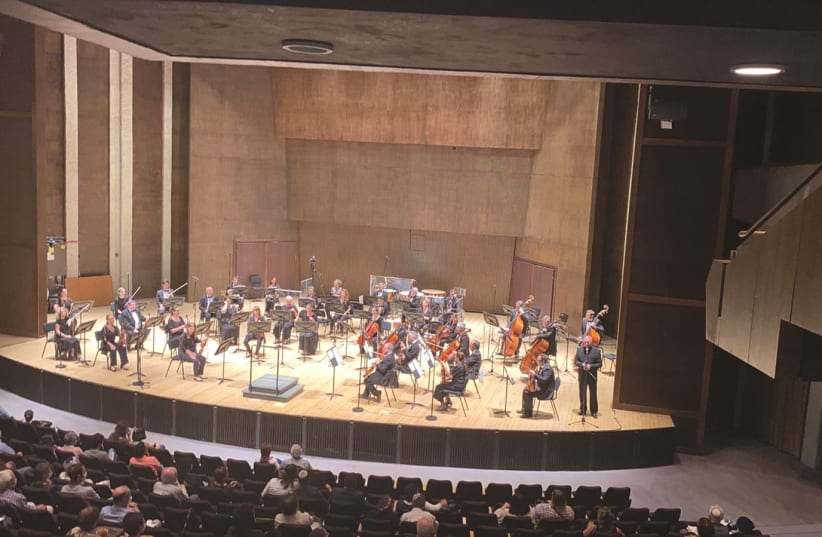A global project to plant a trillion trees to stave off climate change by replacing trees that have been cut down to make furniture or paper has come to Jerusalem. With the help of Deputy Mayor Fleur Hassan-Nahoum, a pilot project was launched this week under the name of Bustan Bagan, which literally translates as an orchard in the garden.
The idea is for kindergarten children to plant fruit trees in 150 kindergartens across Jerusalem. Each kindergarten will plant approximately 30 trees. In advance of the shmita sabbatical year, in which fields are supposed to lay fallow, children will gain an appreciation of nature as they watch their trees grow and bloom, connecting them to the environment from a very early age. Each tree will be “adopted” by five children. Working on a roster system, it will be their duty to care for the trees, a factor that may extend to their homes where they will take responsibility for caring for the garden. Treellion, a word play on the project, has so far been marketed to Jewish kindergartens, but Hassan-Nahoum is keen to have Arab kindergartens involved as well.
IN THE brief period that Israel’s ambassador to the UN and outgoing ambassador to the US Gilad Erdan served as communications minister from 2013-2014, he set the ball rolling for the demise of the Israel Broadcasting Authority.
What he may have done in the process, knowingly or unknowingly, was to also set the wheels in motion for the demise of the Jerusalem Symphony Orchestra, which was under the aegis of the IBA, which supplied its budget.
Admittedly, because the IBA’s own budget suffered from a constant deficit, there were occasional hiccups regarding the funding of the JSO, but the orchestra was always seen by the IBA as a valuable cultural asset that was worth preserving.
Indeed, despite many ups and downs, the JSO has managed to survive since its founding in 1938 as the orchestra of the Voice of Jerusalem, which later became the Voice of Israel.
The late Uri Porat, who served eight years as director general of the IBA, was very fond of the JSO. When Chicago entrepreneur Lester Crown funded the Henry and Rebecca Crown complex extension to the Jerusalem Theatre as a gift to the city of Jerusalem in 1986, few people could have been happier or prouder than Porat, who had frequently visited the site during the construction process. The state-of-the-art Henry Crown Concert Hall had been designated as the permanent home of the JSO – which it still is. However, the JSO’s budget is not supplied by the IBA’s replacement, the Israel Public Broadcasting Corporation. Instead, its budget comes from the Culture and Sport Ministry – and it’s never enough. The JSO operates under a perpetual deficit, so much so that it is in danger of dismantling.
JSO musical director, American-Israeli conductor Steven Sloane, is reportedly optimistic that a solution can be found to the JSO’s financial woes.
A special JSO relief fund has been established, and music-lovers in Israel and abroad have contributed to it. However, this is only a temporary measure. In the final analysis, bearing in mind the source of its budget, the fate of the JSO is primarily in the hands of politicians.
The JSO is a very important part of Jerusalem’s cultural life, and presumably the Jerusalem Foundation, which is deeply interested in preserving and expanding culture and creativity in Jerusalem, will join in the effort to save the JSO.
Mayor Moshe Lion, who has a musical background of his own, should also make saving the JSO a priority of his administration.
THE PAST 18 months have been somewhat of an emotional roller-coaster for Deena and Auri Spigelman, who are this year celebrating the 20th anniversary of their aliyah from the US, as well as Auri’s 80th birthday. They also recently celebrated the engagement of a granddaughter and the births of a couple of great-granddaughters. Last week, Auri participated in the grand finale concert of the Ramatayim Men’s Choir on behalf of the Malki Foundation, which helps the parents care for children with disabilities at home.
After more than a quarter of a century in which it performed gratis for dozens of organizations and institutions, and 15 years during which Spigelman, a tenor, often sang with the group, the choir was calling it a day. The following Saturday, Spigelman led the morning service at Hazvi Yisrael congregation in Talbiyeh. Fellow chorister Michael Wreschner, who has been with the RMC since its inception, led the Mussaf service. Wreschner – whose voice is more in the nature of an Irish tenor – frequently leads Shabbat and holy day services.
When they performed as choir members, Spigelman and Wreschner would wear suits and ties, but in the synagogue they wore open-necked white shirts.
POLITICS AND wars aside, the global media have been filled with stories of remains of prehistoric humans and dinosaurs. But it doesn’t stop there, at least not at the Bible Lands Museum, which on July 29 will open its new exhibition: Early Birds – Soaring with the Ancients. Beyond the actual exhibition, the museum promises unique encounters with ancient birds, special events for night owls, bird-watching, ancient bird tales and more.
Birds have always been important in Jewish tradition and in Israel. The dove, first mentioned in the Bible in the story of the flood, is an international peace symbol, and is frequently used as such in Israel. The eagle is another important bird in Jewish tradition, and the Children of Israel “borne on eagles’ wings” are mentioned in the Book of Exodus.
In contemporary Jewish history, the airlift of Jews from Yemen in 1949 is known by two names: Operation Magic Carpet and Operation Wings of Eagles.
greerfc@gmail.com
